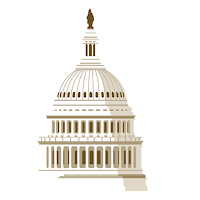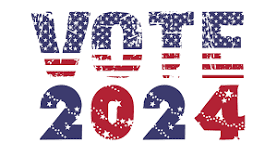Anyone preoccupied with political polarization and democracy in America’s deficits and prospects would do well to check out Harvard Professor James T. Kloppenberg’s encyclopedic review of the relevant literature « Coming Apart? The future of democracy in America, » in the April 2023 issue of Commonweal.
Kloppenberg, Harvard’s Charles Warren Professor of American History, is suitably professorial in the wide-ranging sources he cites, sources central to exploring and understanding important aspects of our polarized present and the dilemmas of our democratic development. His language is academic – not in being excessively abstract, incomprehensible, or excessively narrow – but in its somewhat monistic preoccupation with seeing American history through what many might dismiss as a narrowly « woke » lens, that largely only sees racism and white supremacy. The author wants his readers to know that he is part of the « us committed to what we consider social justice. » That said, he readily recognizes « the anger and resentment felt by those opposed to our efforts, for reasons they consider legitimate, or those left behind economically. » Perhaps it is some sort of compensatory reflex that requires him to express « surprise » that many of those same « left behind » feel « disrespected, disgraced, invisible, and subordinated. » Surely he should recognize, how historically and culturally limited it is to describe many of those same « left behind » as having « once dominated » this nation « so completely that their power went uncontested. » Multiple generations of poor immigrants and working-class children of immigrants would surely be amazed to hear that they « once dominated » the nation, let alone that they dominated it « so completely that their power went uncontested »!
All that having been said, after that first couple of paragraphs, most of the rest of the article reflects serious historical study and analysis and a thorough command of the relevant sources. While recognizing that « strident polarization » is not new in American history, that author rightly recognizes that, especially when compared with the less polarized mid-20th-century period, something is distinctive about our present predicament, which he proceeds to try to explain.
He identifies six factors:
« First, our parties have become more ideologically coherent. Second, our economy is more deeply enmeshed with global flows of capital and labor, which are accepted as inevitable according to the ideology known as neoliberalism. Third, the explosion of college education has blessed new winners and left out, both economically and culturally, many more. Fourth, our media landscape has been transformed by economic and technological changes. Fifth, our practices of active civic engagement, which have intrigued students of American culture since Alexis de Tocqueville visited in 1831, have withered into a craving for entertainment. Sixth and finally, our long-held national conviction that the future is brighter than the present has given way to anxiety, even dread, that our children will inherit environmental disasters and an economy that rewards only a lucky handful at the top. »
The rest of the article is largely an analysis of each of these factors, with copious references to contemporary authors. While rightly acknowledging the racial component of this polarization process, he also pays comparable attention to the economic and social and cultural consequences. Thus, Hubert Humphrey was not only the last Democratic presidential candidate to win a majority of white votes, he was also the last to challenge boldly « the prerogatives of organized capital. » Meanwhile, older cultural « ideals of solidarity and obligation were collateral damage in the campaigns waged by the counterculture and neoliberals against stodgy neo-Victorian morality. Consecrating liberty empowered the powerful and tightened the screws on almost everyone else. » At the same time, the 20th-century’s class-based party cleavages have given way. « conservative parties represent high-income and low-educated voters; liberal parties ‘have become the parties of higher-educated voters’. » As a result, « cultural conflicts » have become more prominent, « especially the resentment felt by the less educated toward the more educated. » On the one hand, Republicans blame cultural elites for voters’ problems. On the other, « Democrats give them little reason to disagree. »
The changes in the American media landscape have also contributed mightily to our present situation. « Because most local papers have shrunk or vanished, many Americans now know less about community issues that really matter to their lives. Filling that vacuum … are obsessions with the largely symbolic, highly charged issues of the culture wars. » So, while citizens increasingly know less, « many are furious much of the time. »
What to do with all that fury?
Recognizing « that democracy rests on cultural predispositions, the premises of deliberation, pluralism, and an ethic of reciprocity, » Kloppenberg advocates coalition building: « we must surrender our self-righteous insistence that others share our views and cooperate to achieve piecemeal, moderate reform, which requires humility and patience as well as tolerance. Dogmatism and purity tests obstruct Americans’ ability to work together across lines of difference. »




